YDOC¶
The YDOC ML-315 range of data loggers can be configured to send data to eagle.io in a few easy steps.
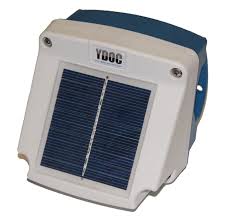
Source configuration¶
- Create a Data Source and select File as the Source Type. Choose Delimited Text from the list and click Next.
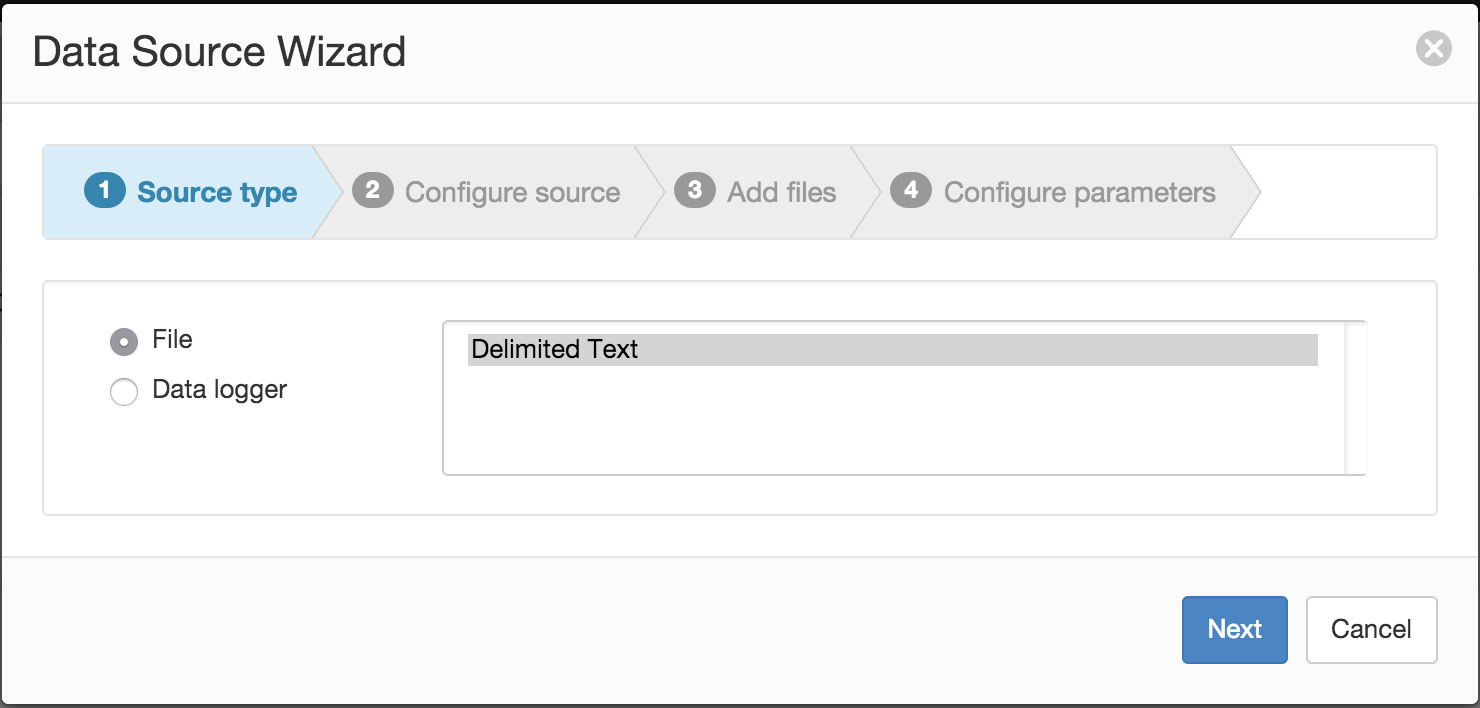
- Select Upload to ftp.eagle.io as the transport type. A unique Ftp user account will be automatically generated per Data Source. You can optionally specify a password to be used by the logger for additional security. Select the Timezone you have configured in the YDOC logger and leave the Ignore Daylight Savings Time option checked (unless you have enabled the DST adjustment option in the logger). Click Next to continue.
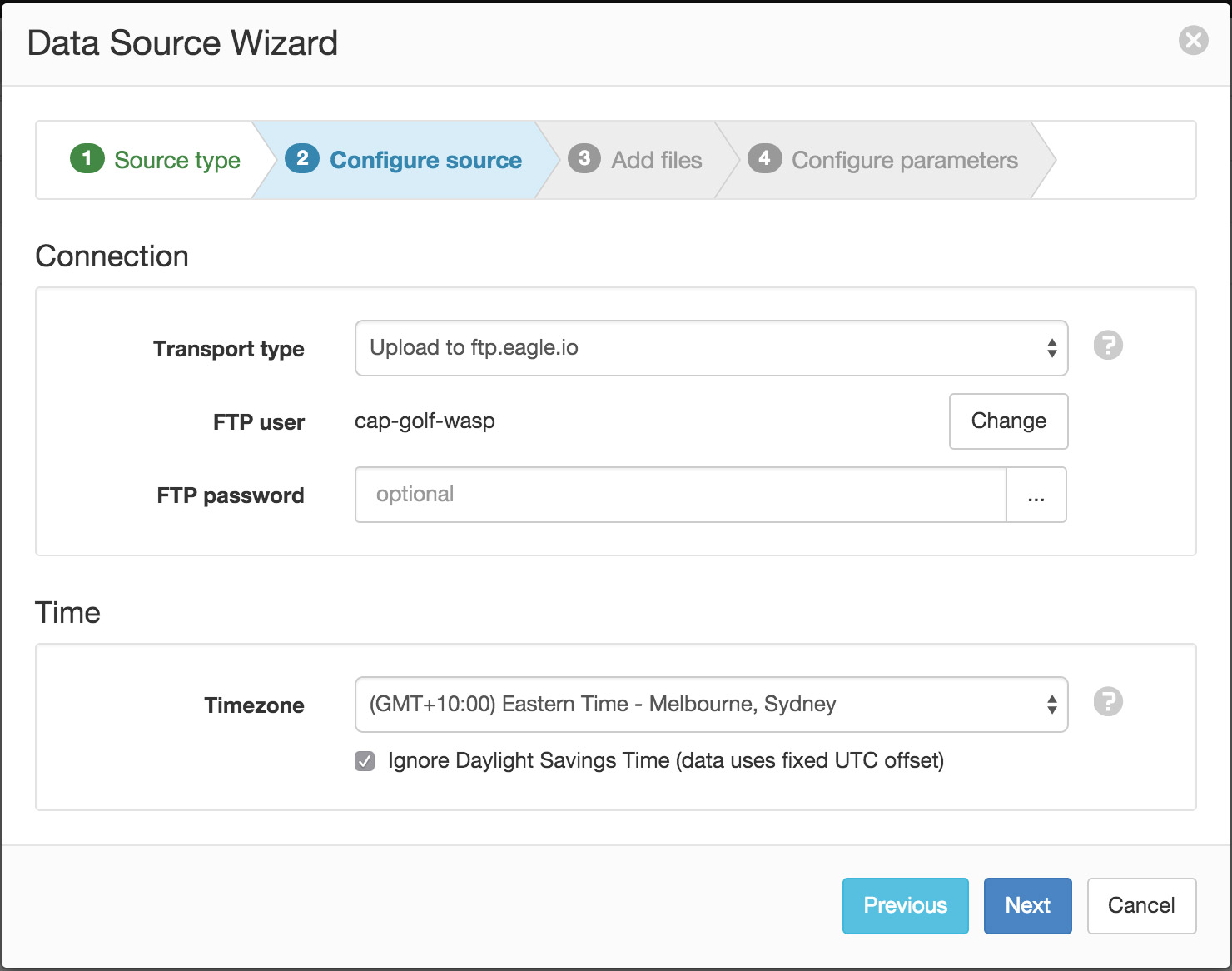
- Specify csv as the File name match. This will match all incoming files for this Source containing ‘csv’ in the filename. To continue the setup you will need a sample copy of the logger’s output data file(s).
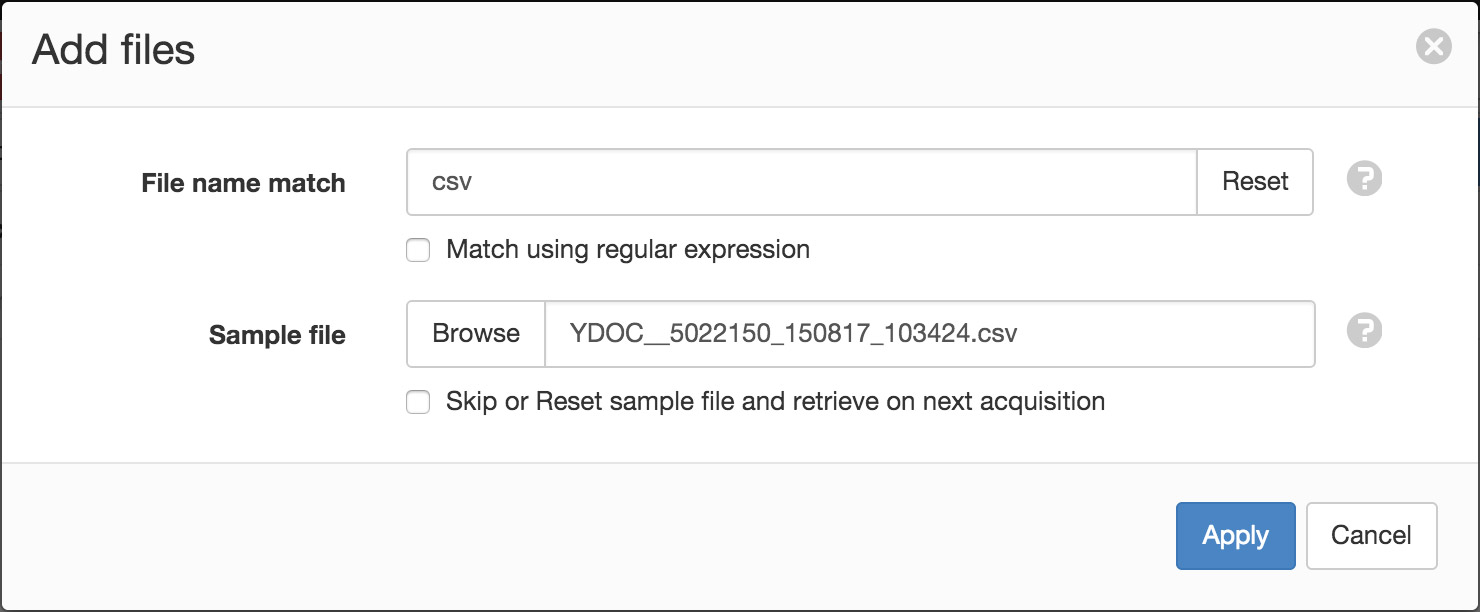
Note
If you do not have a sample available, click the Skip checkbox and click finish on the next screen. A sample will be saved automatically on the initial upload from the data logger and you will need to open the Data Source properties dialog and configure the series to create parameters.
- The Parser configuration screen allows the user to describe the structure and format of the data file so it can be correctly interpretted by the system in subsequent uploads. Refer to Text Parser Configuration for full details.
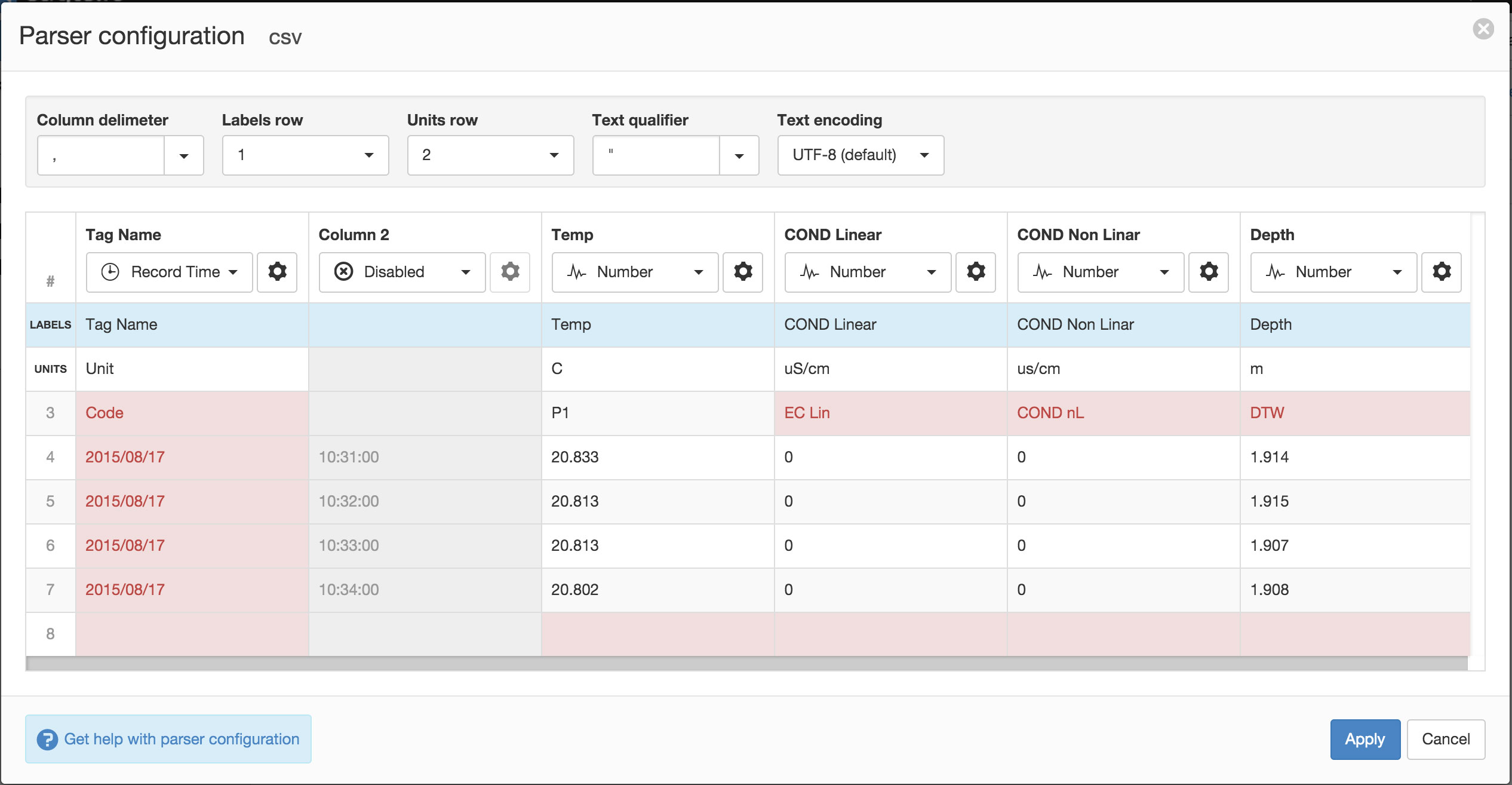
If the file contains header rows, set the Labels row control to the corresponding row number (1 by default) which will assign default labels for parameter creation. You can also specify the Units row if it is available (2 by default).
Ensure the data in each column matches the expected column data type and format. Validation errors are shown in red. Any columns not required for collection can optionally be Disabled.
You will need to use the drop-down menu above the columns to assign the Record Time data type to the first column containing part of the record timestamp. Click the configure button to change the Format field to use the time format YYYY/MM/DD.
The record timestamp spans multiple columns. Add any additional columns containing part of the timestamp and specify the format. By default you will need to add ‘Column 2’ to the list of Column joins and change the Format field to use the time format HH:mm:ss. Click Apply and Next.
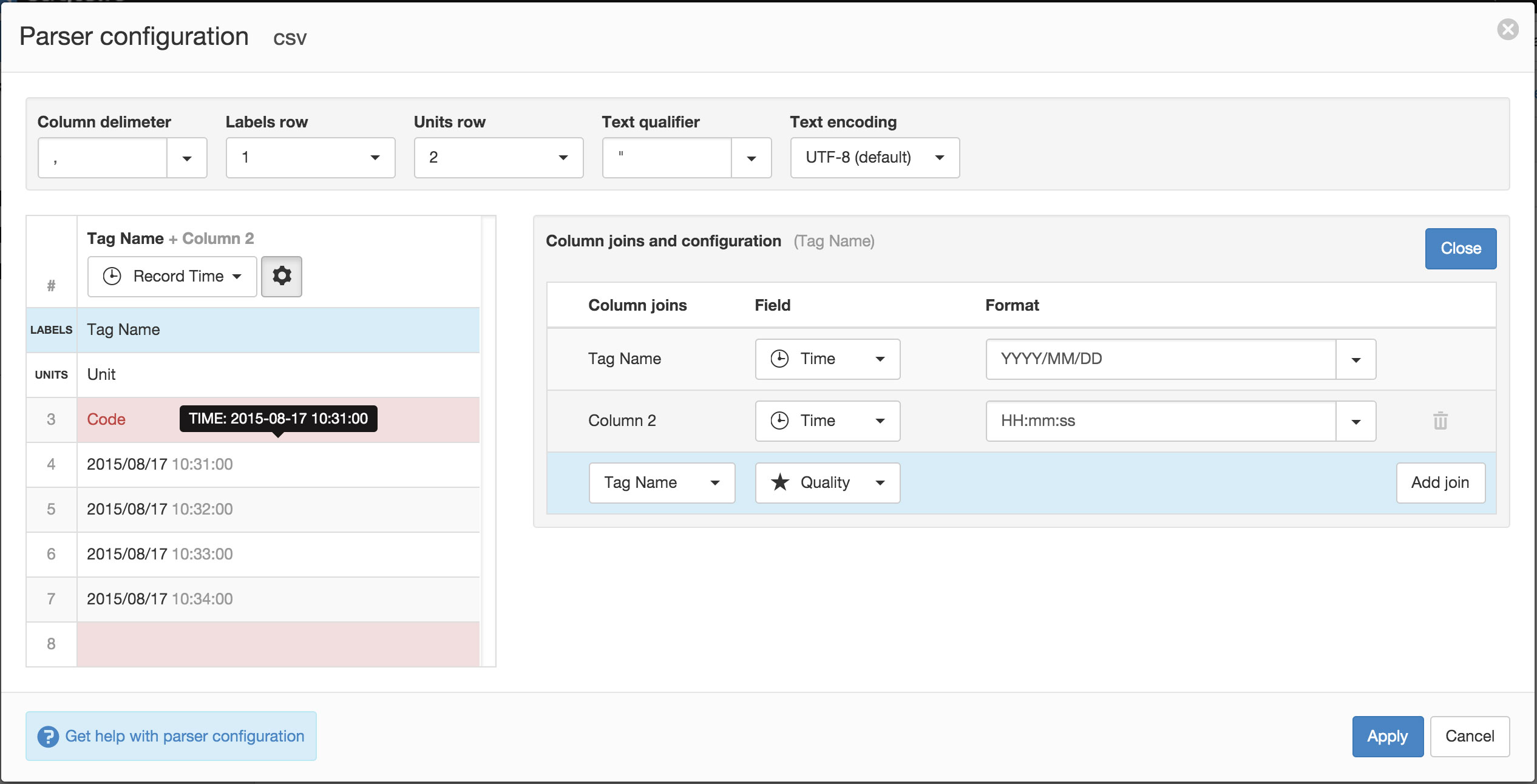
- Click next to Configure parameters.
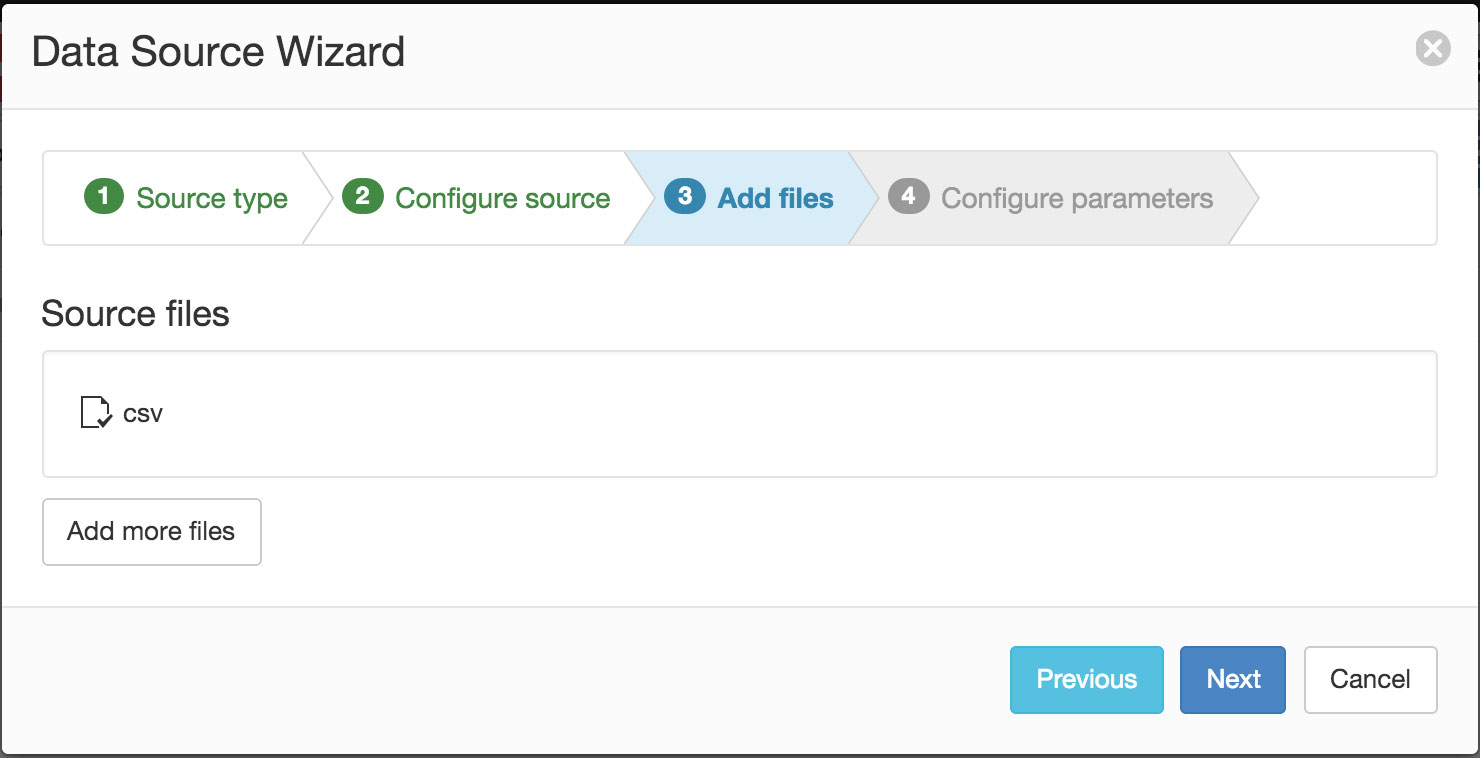
- Specify the parameter names (and optionally units) for each series/column defined in the Parser configuration. Uncheck any series you do not want to create as parameters. Click Finish to complete the setup.
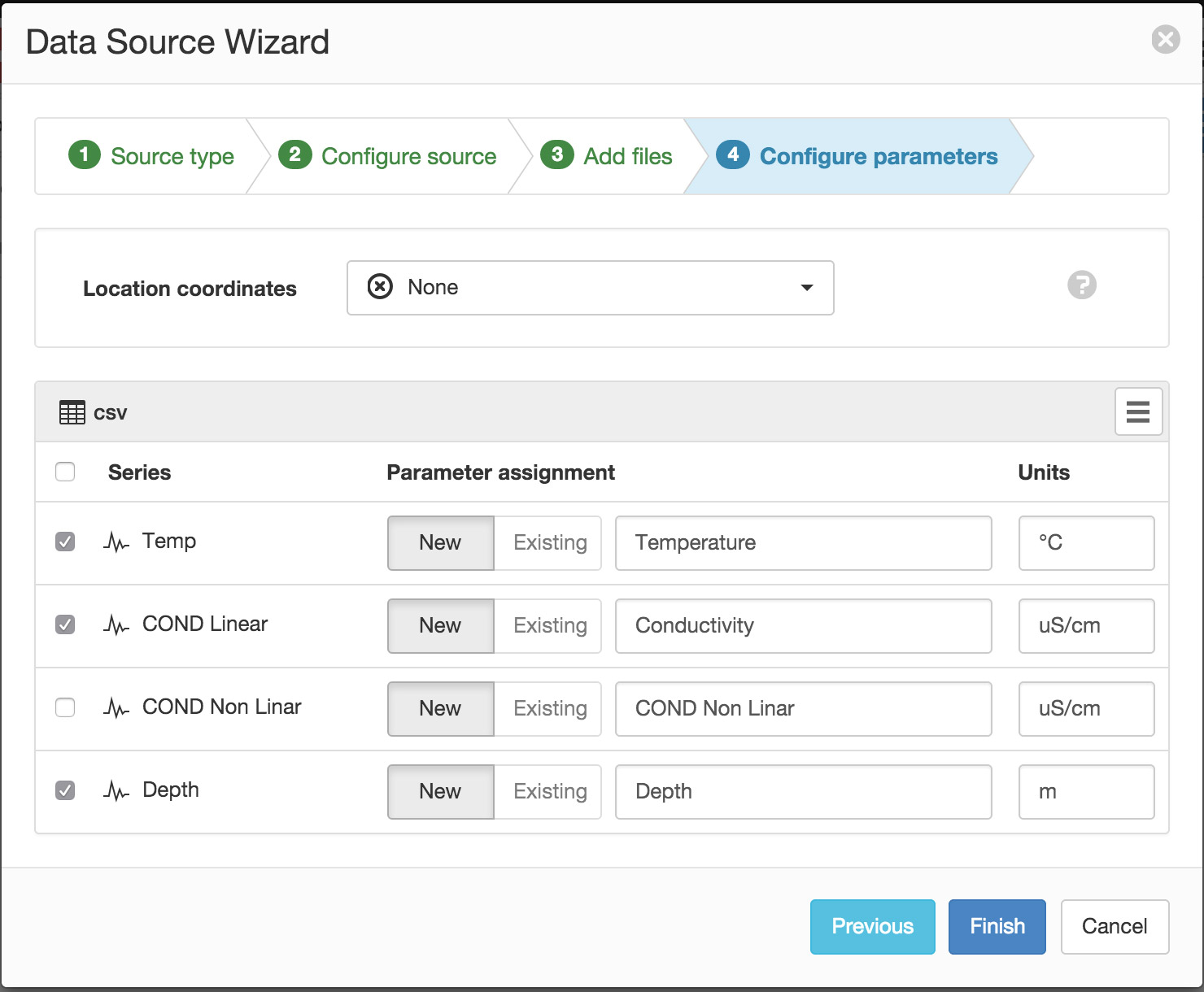
Note
You can reconfigure the file name match/sample file, parser configuration and parameter assignment from the Data Source properties dialog after creation.
Device settings¶
Use the YDOC terminal software to configure the logger for communication with eagle.io. Refer to your YDOC user manual for connection instructions.
Select option [D] FTP output from the Configuration setup menu.
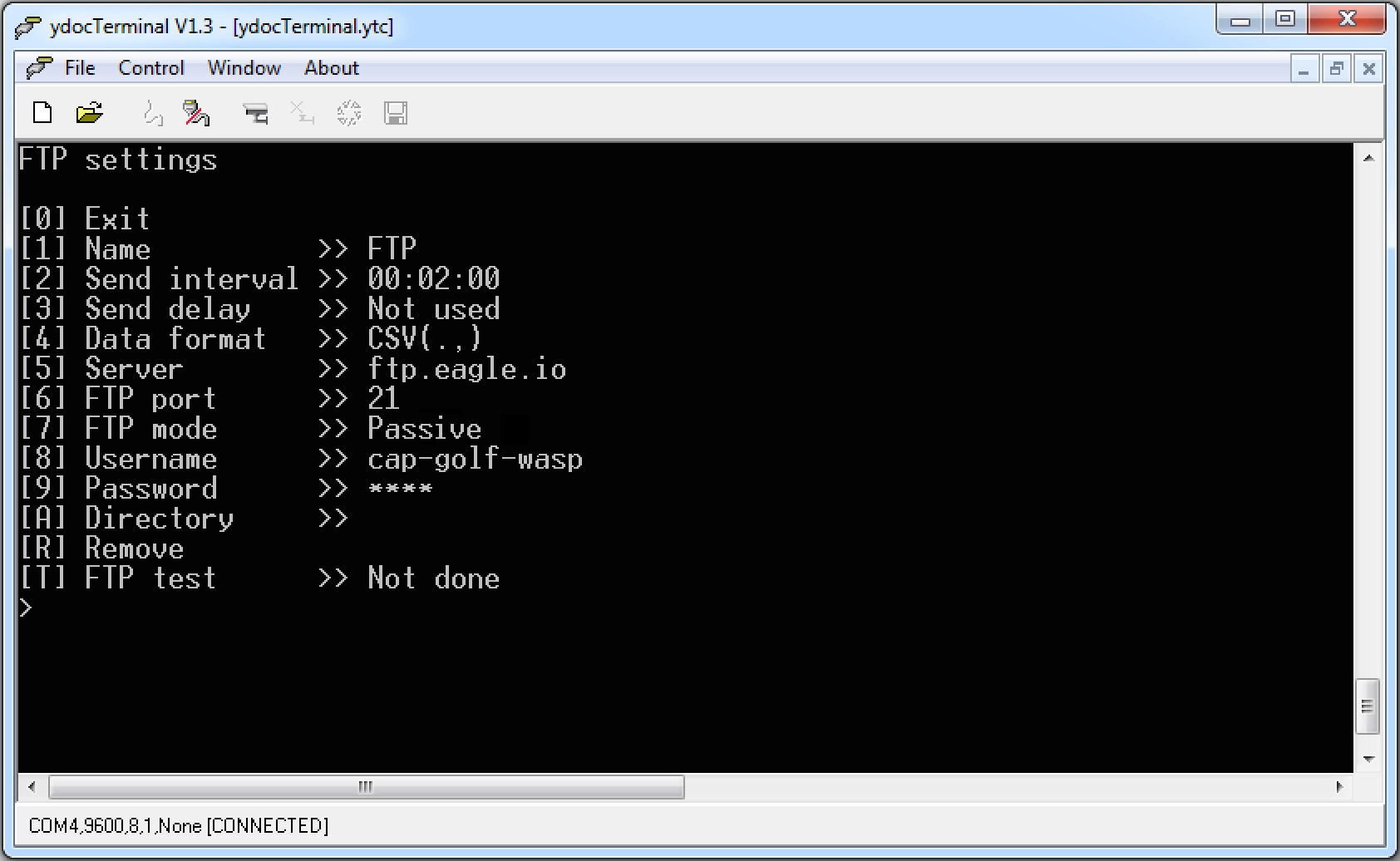
The following FTP settings should be assigned:
- [2] Send interval
- Specify the frequency of the data uploads to eagle.io.
- [4] Data format
- CSV (Option 1)
- [5] Server
- ftp.eagle.io
- [6] FTP port
- 21
- [7] FTP mode
- Passive
- [8] Username
- Use the unique FTP user generated during Data Source creation. eg. cap-golf-wasp
- [9] Password
- Use the password you assigned during Data Source creation (or set to ‘pass’ for none).
You should also ensure the YDOC data logger has been configured with the correct time and timezone offset.
Note
Use the Events view with the detail level set to Debug for reviewing communication history and diagnosing configuration issues.